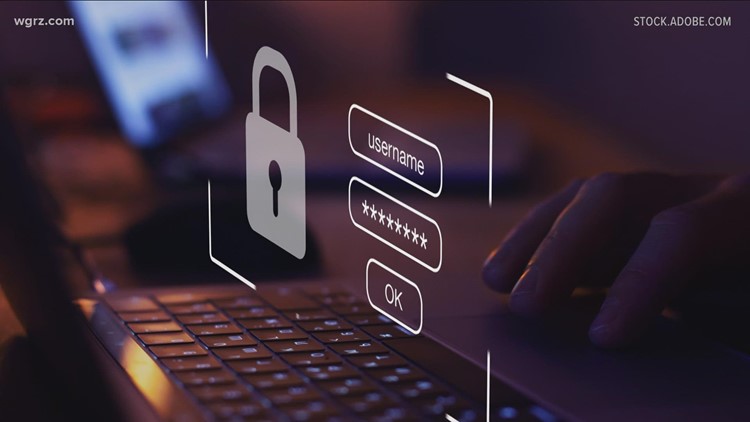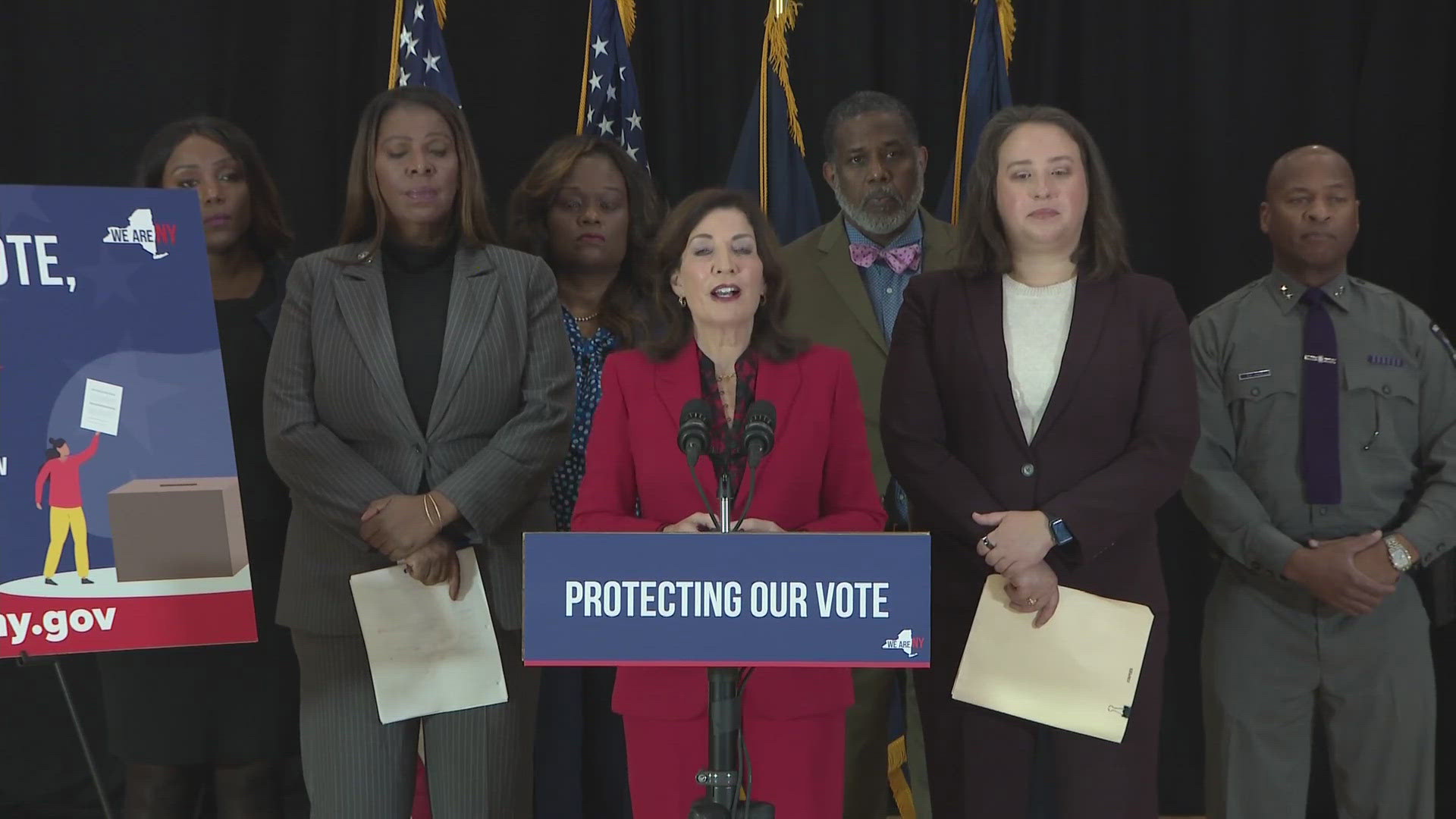ALBANY, N.Y. — New York Governor Kathy Hochul is warning New Yorkers about charity scams and increased cybersecurity related to Russia's invasion in Ukraine.
Officials are warning people to be aware when releasing personal or sensitive information online, as there has been a recent uptick in cybersecurity threats.
The governor's office also says the The New York State Division of Consumer Protection has learned scams asking for money to support victims of the Ukraine war.
Consumers should evaluate any request for money and verify charities prior to donating any money or supplies.
"New York is home to the largest Ukrainian population in the United States, and New Yorkers always lend a helping hand to take care of those in need," Hochul said in a released statement. "However, we must remain cautious of those who try to commit fraud, taking advantage of others' kindness. In your generosity to help our Ukrainian friends and family, remember if something seems suspicious, it likely is. Encourage your friends and family, especially elderly loved ones, to stay vigilant online."
Acting Commissioner of Taxation and Finance Amanda Hiller said, "The global crisis in Ukraine has intensified concern about cyberattacks, so we must all be vigilant to prevent confidential information from falling into the wrong hands, denial-of-service attacks, and other negative consequences."
"Countless New Yorkers with the best of intentions have donated to charities in support of the people of Ukraine, and they are making a difference. Unfortunately, this generosity also creates new opportunities for cybercriminals to exploit. To protect yourself and to ensure your generous donation always gets in the hands of those who truly need the help, ITS asks New Yorkers to follow these best practices and to remain vigilant in light of recent online threats and cyber scams," said Office of Information Technology Services CIO Angelo 'Tony' Riddick.
Experts say the scammers try to make contact through via social media, unsolicited emails, phone calls, or text messages. They may ask you to send them money through a payment app like, Cash App, Venmo or Zelle, or a money wire.
The New York State Division of Consumer Protection recommends taking the following precautions:
- Verify the request. Scammers are more frequently posing as friends, family or romantic interests on social media and requesting donations; it is easy to copy someone else's photo and biographical information and create a fake account online. If you receive an unsolicited request for donation relief online, even if it appears to be someone you know, connect with the person directly through a different communication link to verify the request. Do not click on any links or complete forms before verifying the source. If the request is coming from someone you only recently met online, it is most likely a scam and you should be especially wary.
- Research the charity. Don't rely on a charity website alone. Search online before donating to any charity using the name of the group plus search terms like "review" and "scam". The Federal Trade Commission recommends checking with give.org, charitynavigator.org,charitywatch.org, or candid.org to see reports and ratings for charities. You can also check with the Internal Revenue Service (IRS) for verification that a charity is registered. The Office of the Attorney General also recommends reviewing the Charities Registry for financial reports prior to donating to ensure the charity is fiscally sound.
- Resist high-pressure tactics. While the situation is urgent, consumers should resist being pressured to donate immediately. Scammers often pressure you to donate immediately, causing you to overlook red flags in their story. Beware of direct e-mails from "victims" and solicitors who employ heart-wrenching stories, insisting that you donate immediately. Do not to give money over the phone to unsolicited telemarketers; instead, ask the caller to send written materials about the charity and where to donate, if you choose.
- Keep personal information private. Never give your Social Security number, credit card or debit card number, or other personal identifying information in response to an unsolicited charitable request. If donating online, ensure that your internet connection is secure before following through on donation requests.
- Ask how your money will be spent. Consumers want to know that their money is going directly to the victims. A genuine charity should be able to let you know how much of your donation will go directly to the program as opposed to administrative fees.
- Donate by check or credit card. Never give money using cash, gift cards, crypto currency, or any tender that would be difficult to trace. Give your contribution by check or credit card to ensure that you have a record of the donation. Make checks out to the charity, not to an individual. If you choose to donate via a charity's website, check that the website is secure and that your computer is equipped with the latest anti-virus protection.
If you feel you have been a victim of a fraudulent charity, you can file a complaint with the New York State Division of Consumer Protection at https://dos.ny.gov/file-consumer-complaint.
You can also call the Division's Consumer Assistance Hotline Monday to Friday from 8:30am to 4:30pm at 1-800-697-1220.



